A Bulgarian trader in spare parts for buses has become a national celebrity after starting to patrol the Turkish border “hunting” for migrants. Many Bulgarians applaud his vigilante initiative, though others are deeply troubled.
“Bulgaria needs people like me, dignified Bulgarians, willing to defend their homeland,” says Dinko Valev, sipping a fresh-squeezed orange juice in a flashy cafe in his hometown, Yambol, 50km (30 miles) from Bulgaria’s border with Turkey.
http://www.bbc.com/news/magazine-35919068
Valev, 29, is a beefy semi-professional wrestler with a shaved head and a brusque manner. His left pectoral is tattooed with a cross the size of a T-bone steak.
He became famous overnight last month when national television news carried a report labelling him a “superhero” and detailing a violent encounter with a group of Syrians near the border as he was out riding on his quad bike.
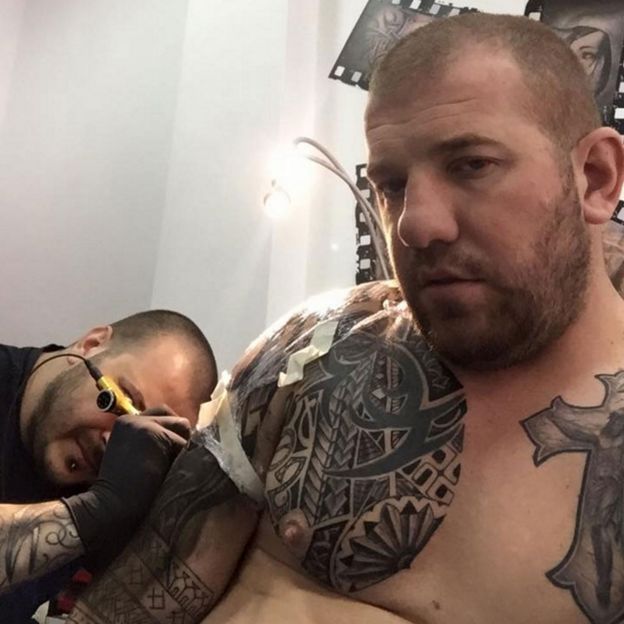 Image copyrightFACEBOOK / DINKO VALEV
Image copyrightFACEBOOK / DINKO VALEV
The presenter praised Valev for subduing the group of 12 Syrian men, three women and a child “with his bare hands”.
They can be seen on mobile phone footage filmed by one of Valev’s companions, lying on the ground waiting for police to arrive. Valev can be heard insulting the refugees and saying that they came from Syria “to kill us like dogs”.
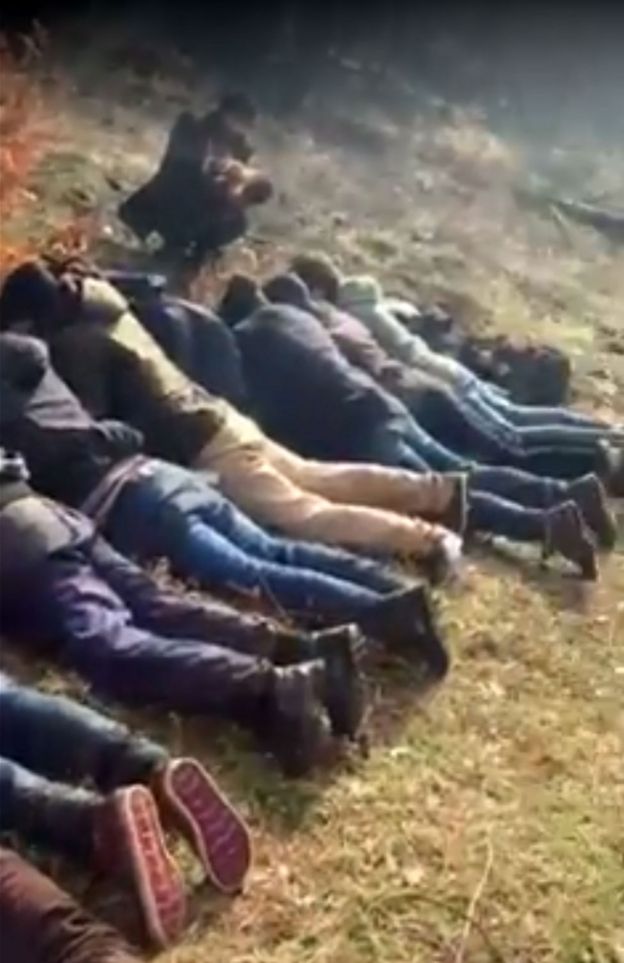 Image copyrightFACEBOOK / DINKO VALEV
Image copyrightFACEBOOK / DINKO VALEV
“These are disgusting and bad people and they should stay where they are,” Valev tells me in the cafe. He estimates that 95% of Bulgarians support him, describing the migrants as dangerous “terrorists, jihadists and Taliban”.
“Bulgaria is an unfenced yard and is completely disorganised,” he says, reflecting a lack of confidence in government that many Bulgarians share.
In fact, the Bulgarian government has built a fence along about half of the Turkish border, and is now seeking to lengthen it.
Valev has used his new-found fame to call for volunteers to join him on a border patrol. On 12 March, he says, some 50 unarmed people gathered to look for migrants along the forested border, on quad bikes and jeeps.
But a large group of border police were waiting when they arrived. According to Valev they were deliberately scaring away migrants to prevent the vigilantes catching any. The time and place of future patrols, he says, will not be publicly announced.
Border police spokeswoman Lora Lyubenova says the authorities welcome information from citizens about criminal activity – including illegal border crossings – but that only the police have the authority to detain and arrest people.
Last year more than a million people used the “Western Balkan route” to enter the European Union though only 31,000 are known to have entered Bulgaria.
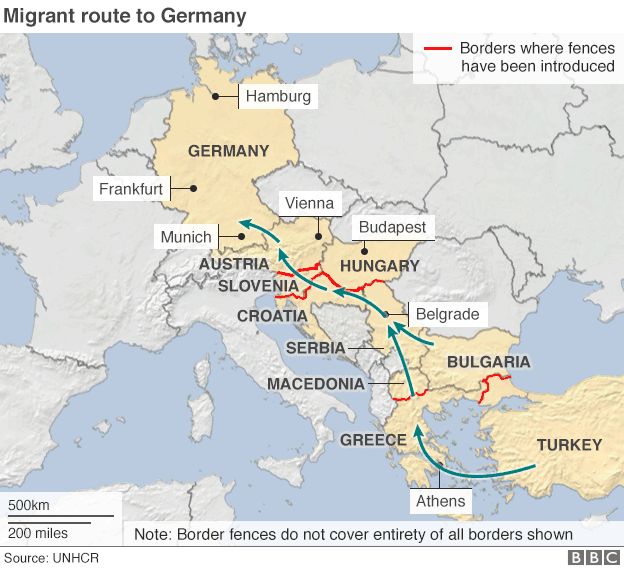
Even so, the Bulgarian media is permeated with inflammatory anti-migrant rhetoric. A 2013 study by the Association of European Journalists, a Sofia-based NGO, looked at 8,439 articles about migrants published in the Bulgarian media and found that the two most commonly appearing words were “threat” and “disease.” The director of Bulgaria’s National History Museum, popular historian Bozhidar Dimitrov, has floated the idea of converting migrants to Christianity, and suggested that Bulgaria accept only women and children.
“Public officials openly instil fear and animosity against the refugees, consistently presenting them as a threat to the Bulgarian public,” says Margarita Ilieva, head of the legal programme at the Bulgarian Helsinki Committee, a human rights organisation.
The Helsinki Committee has asked prosecutors to investigate Valev, pointing out that he bragged on national television about committing half a dozen crimes: assault and battery, making death threats, unlawful detention, inciting ethnic hatred and inciting ethnic violence.
For his part, Valev says that he was acting in self-defence after a Syrian man tried to stab him.
Several other Syrian men then became aggressive, Valev says, so he then used force to subdue them as well.
When Valev was taken in for questioning by police on Friday, a crowd of about 30 protesters gathered outside shouting “Dinko is a hero!” and “We don’t want migrants!”
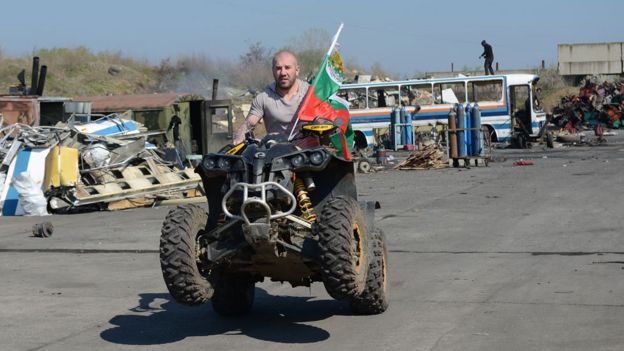 Image copyrightHRISTO RUSEV
Image copyrightHRISTO RUSEV
Fear of migrants has become a powerful focal point for popular discontent about many unrelated problems, according to Haralan Alexandrov a social anthropologist at the New Bulgarian University, who says Bulgarians are no more or less xenophobic than any other Europeans.
Corruption, poverty, disappointment with EU membership, Bulgaria’s dysfunctional judicial system and the failure to reform it – all these make Bulgarians angry, he says.
“Instead of focusing your anger against the powerful judiciary, it’s easier to attack the terrified refugees hiding in the weeds. You sense that something is wrong with the world and somebody must be blamed, so you choose the weaker target,” he explains.
There is also historical trauma. Bulgaria was part of the Ottoman Empire for some 500 years until 1878, and nationalist propaganda has programmed Bulgarians to view every representative of the Islamic world as a potential rapist and terrorist, Alexandrov says – a perception exacerbated by the recent bombings next door in Turkey.
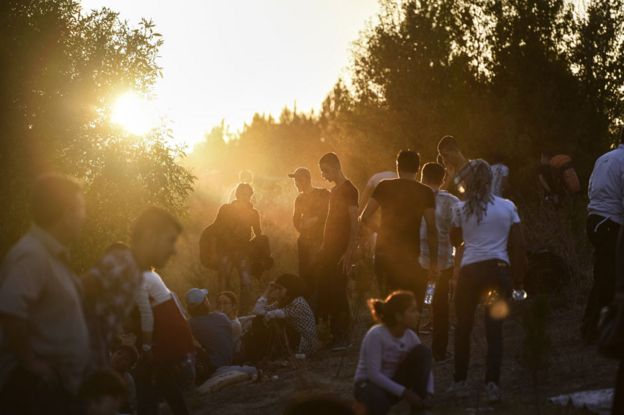 Image copyrightGETTY IMAGESImage captionSyrians near the Turkish city of Edirne heading for the Bulgarian border (September 2015)
Image copyrightGETTY IMAGESImage captionSyrians near the Turkish city of Edirne heading for the Bulgarian border (September 2015)
Meanwhile, the failure of European leaders to deal with the migrant crisis is seen as “definitive proof that the European Union is a tired, wrinkled old grandmother who has allowed herself to be groped and raped by lustful and predatory men,” he says.
One new concern is the possibility that trafficking routes may change as a result of the new agreement between the European Union and Turkey on returning asylum-seekers. Last week Prime Minister Boyko Borisov said the government remained ready to erect a fence along Bulgaria’s border with Greece too, if it proved necessary.
Meanwhile, the mayor of Topolovgrad, between Yambol and the Turkish border, has made headlines by asking the defence ministry for military equipment to set up a local volunteer emergency response force, in case the flow of migrants escalates – an armoured personnel carrier, an armoured reconnaissance vehicle, two flatbed military trucks, 30 AK-47 rifles, uniforms, combat boots and tents.
He said some 200 local men had already volunteered.
Subscribe to the BBC News Magazine’s email newsletter to get articles sent to your inbox.
